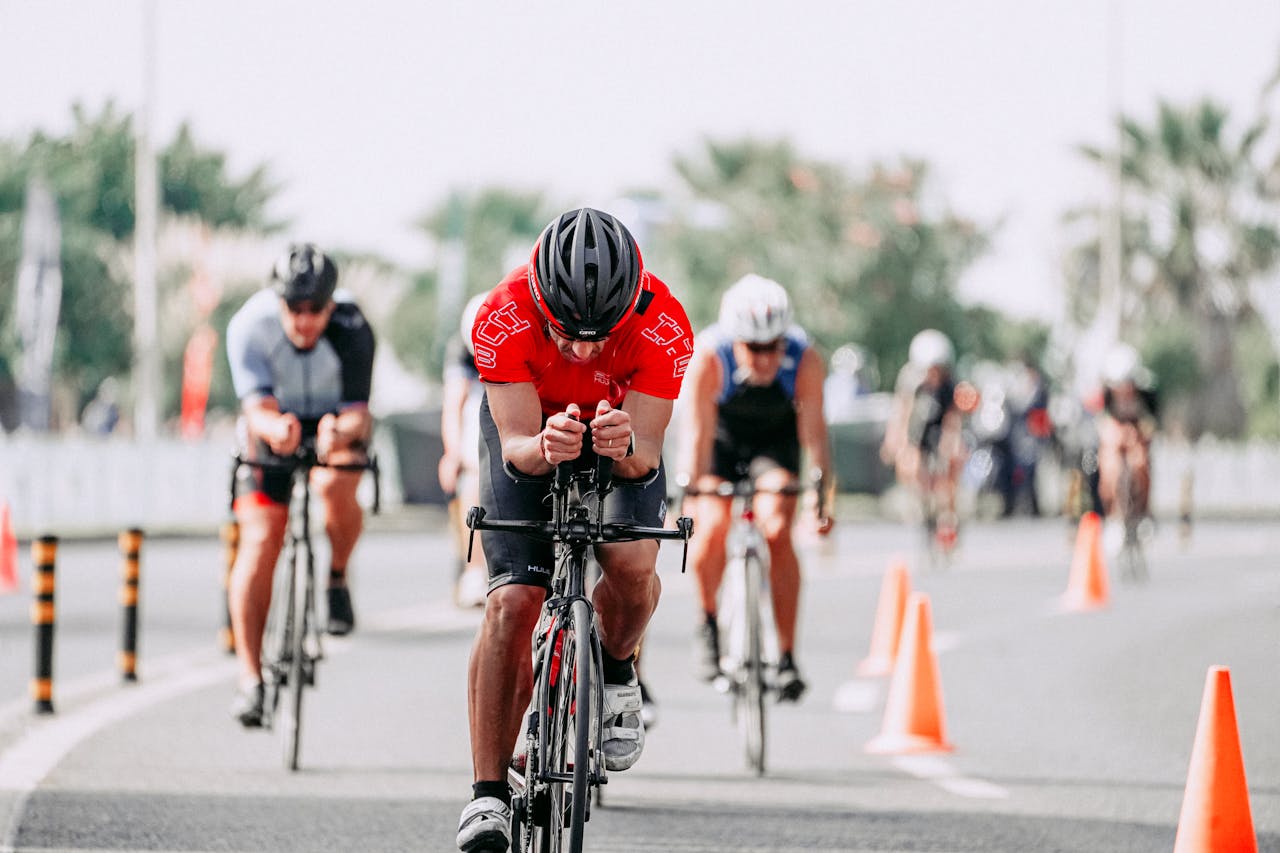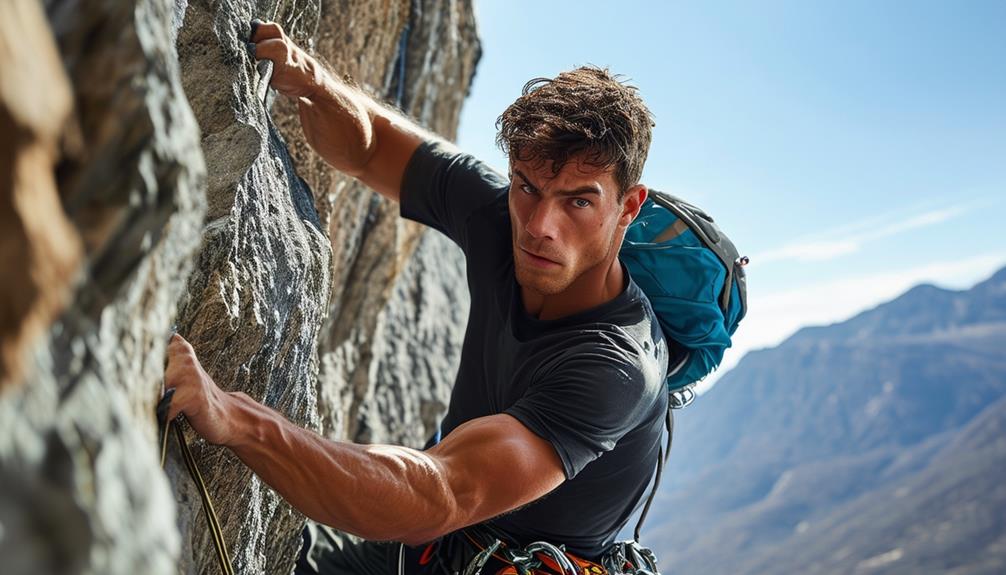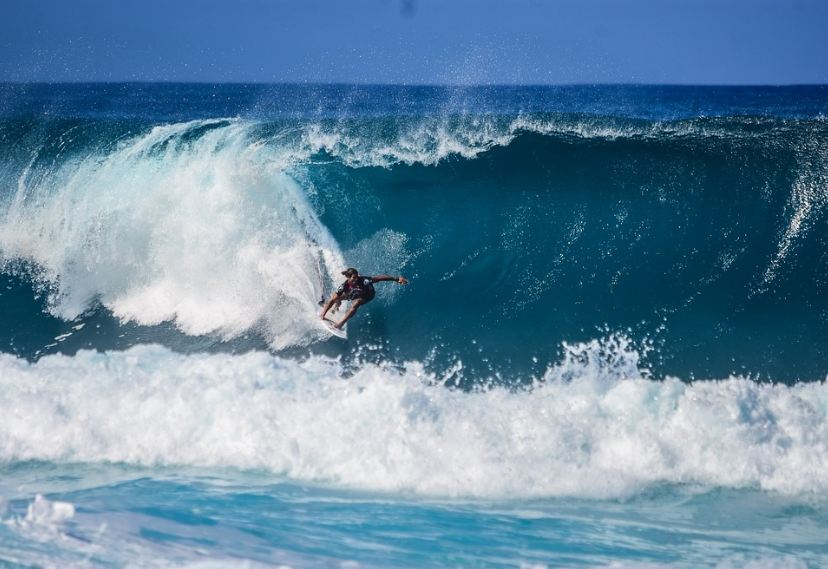How Extreme Sports Are Redefining the Concept of Fitness

You might think fitness is all about lifting weights and running marathons, but extreme sports are redefining that notion. These activities demand not only physical strength but also mental toughness, adaptability, and resilience. Picture yourself navigating unpredictable terrains where endurance and strength are just the basics.
Training for these sports now incorporates holistic methods that combine physical, mental, and emotional fitness. So, what does it take to excel in this evolving fitness landscape? The answer may surprise you and transform your perspective on fitness.
Key Takeaways
- Extreme sports emphasize both mental resilience and physical prowess, demanding adaptability in unpredictable conditions.
- Holistic fitness approaches combine physical, mental, and emotional training, promoting comprehensive well-being.
- Success in extreme sports is gauged by endurance, strength, and mental toughness.
- Training for extreme sports extends beyond traditional fitness, preparing participants for varied and challenging environments.
- These sports encourage personal growth, stress reduction, and foster a supportive community.
The Evolution of Fitness

The evolution of fitness in extreme sports has progressed from focusing solely on physical prowess to incorporating mental toughness, endurance, and adaptability. In disciplines such as ultra-running, ultra-cycling, and long-distance swimming, athletes now prioritize a comprehensive approach to fitness, emphasizing both physical and mental training to handle the unpredictable challenges inherent in these sports.
Extreme sports redefine traditional fitness by extending both physical and mental boundaries. Athletes regularly test their limits, cultivating resilience and adaptability to diverse environments. Success in these sports isn't just measured by speed or strength but by the ability to persevere through grueling conditions and unexpected obstacles.
Additionally, the culture within extreme sports fosters camaraderie and mutual support. The community values shared experiences and personal accomplishments, which helps athletes stay motivated, overcome challenges, and embrace risks. This unique blend of physical activity, mental fortitude, and personal growth makes the journey in extreme sports as rewarding as the achievement itself.
Physical Demands of Extreme Sports
Engaging in extreme sports requires exceptional physical endurance, strength, and adaptability to navigate diverse terrains and endure grueling conditions. Participants must push their physical limits, often covering extensive distances, as seen in ultra-endurance events. Whether involved in adventure racing or ski mountaineering, rigorous training is essential to handle unpredictable and harsh environments.
Here's a snapshot of the physical demands across various extreme sports:
| Sport | Physical Demand |
|---|---|
| Ultra-Endurance | Covering hundreds to thousands of miles |
| Adventure Racing | Negotiating varied terrains and conditions |
| Ski Mountaineering | Managing steep climbs and descents |
| Long-Distance Swimming | Overcoming sleep deprivation and extreme weather |
Specialized training methods are crucial for success in extreme sports. For example, dragging tires can simulate the weight of sleds, enhancing endurance and strength. Preparation involves a holistic approach, encompassing endurance, adaptability, and resilience. Understanding and preparing for these demands is key to thriving in the extreme sports arena, pushing the boundaries of physical achievement.
Mental Fortitude in Extreme Athletes

Mental fortitude in extreme athletes stems from overcoming psychological barriers and building mental resilience. They train to face fear and uncertainty directly, employing strategies like visualization and positive reinforcement. This mental strength is crucial for enduring intense physical and environmental challenges.
Overcoming Psychological Barriers
Engaging in extreme sports demands exceptional mental fortitude, as athletes continually push through physical pain and mental fatigue to surmount daunting challenges. This psychological strength, often enhanced by specialized training and support, enables them to navigate hazardous terrains and withstand severe weather conditions. Mental toughness is crucial as athletes encounter barriers that test their limits.
Extreme athletes employ several strategies to overcome these psychological barriers:
- Coaching and Sport Psychology: Expert guidance helps athletes build resilience and maintain focus under pressure.
- Nutrition: Proper nutrition fuels both the body and mind, ensuring athletes sustain peak performance.
- Camaraderie: A sense of community and shared experiences among athletes creates a supportive environment that fosters perseverance.
- Personal Achievements: Reaching personal milestones strengthens confidence and reinforces mental strength.
Success in extreme sports isn't solely about physical fitness; it's about the mental determination to overcome pain, fatigue, and self-doubt. By cultivating this mental toughness, athletes can conquer the most formidable challenges in their sport, achieving feats that redefine fitness.
Enhancing Mental Resilience
Building on the concept of mental toughness, let's explore how extreme athletes bolster their mental resilience to conquer formidable challenges. Extreme sports often require athletes to endure sleep deprivation, extreme weather conditions, and physical exhaustion, particularly in events like ultra-triathlons. These harsh conditions serve as mental battlegrounds where resilience is forged.
Specialized coaching and sport psychology are crucial in this process. Coaches assist athletes in developing strategies to manage stress, maintain focus, and stay motivated. Sport psychologists teach techniques such as visualization and positive self-talk to help athletes overcome barriers.
The endorphins released during intense physical activities also contribute to mental resilience. These natural painkillers enable athletes to endure and recover from extreme exertion. Additionally, personal progress and the shared experience of suffering with fellow athletes enhance mental fortitude. The camaraderie and mutual encouragement found in races can be incredibly empowering.
Overcoming pain and obstacles is fundamental to developing mental resilience. The extreme sports community prioritizes perseverance, mental strength, and support, creating an environment conducive to building mental fortitude. By embracing these elements, athletes not only survive but thrive in extreme conditions.
Holistic Training Approaches
In recent years, holistic training approaches in extreme sports have gained popularity for their focus on integrating physical, mental, and emotional fitness. When you're engaged in rock climbing, for example, it's not just about physical training. You need a regimen that builds total body strength, improves mental resilience, and maintains emotional well-being. This holistic method is key to achieving peak performance and preventing injuries.
To fully adopt this approach, your training plan should include the following components:
- Cross-training: Engage in different sports or exercises to build overall fitness and prevent overuse injuries.
- Flexibility work: Incorporate yoga or stretching routines to enhance mobility and reduce the risk of strains.
- Strength training: Focus on building muscle strength and endurance essential for demanding activities like rock climbing.
- Mindfulness practices: Use techniques like meditation to improve focus and mental resilience.
Benefits Beyond Physical Health
Beyond the obvious physical benefits, participating in extreme sports significantly enhances mental health by reducing stress and building resilience. Engaging in these intense activities not only shapes your body but also fortifies your mind.
The adrenaline rush that accompanies each challenge elevates your overall well-being and mood. Extreme sports athletes often report increased focus and mindfulness due to the high levels of concentration required.
Moreover, these activities foster personal growth and self-discovery. They push you to surpass your limits, cultivating a sense of accomplishment that traditional methods can't provide. This process of discovering your capabilities enhances self-confidence and promotes a positive mindset, making you more resilient to stress and adversity. Social connections also flourish within the extreme sports community. You'll find camaraderie among like-minded individuals, creating strong bonds and a supportive network.
This sense of belonging can significantly improve your mental health, providing a community that supports and celebrates your achievements. Thus, while extreme sports redefine fitness, they also offer invaluable benefits that extend far beyond physical health.
Popular Extreme Sports

Venturing into the realm of extreme sports, you'll encounter activities like ultra-running, ultra-cycling, and long-distance swimming, each pushing the boundaries of physical and mental endurance. These sports cover vast distances, often ranging from hundreds to thousands of miles, and demand specialized gear and rigorous training due to varied terrains and conditions.
Other notable extreme sports include:
- Adventure Racing: This multi-discipline endurance sport involves navigation, mountain biking, trekking, and often kayaking.
- Ski Mountaineering: Combining skiing and climbing, this sport requires high-altitude endurance and technical expertise.
- Swimrun: Teams alternately swim and run across different terrains in this endurance challenge.
- Ultra-Triathlon: An extension of traditional triathlon, this sport features even more grueling swim, bike, and run segments.
Mountain biking, in particular, appeals to those seeking rugged, off-road challenges. Participants navigate steep inclines, rocky paths, and unpredictable trails, demanding both physical strength and mental resilience.
These sports not only push physical boundaries but also cultivate skills like navigation, adaptability, and perseverance. Engaging in extreme sports involves continually overcoming new challenges, fostering a profound sense of personal achievement and redefining the concept of fitness.

Community and Culture
Engaging in extreme sports immerses you in a community built on shared adrenaline experiences and mutual support. These activities forge strong bonds and support networks, emphasizing perseverance and mental toughness. Embracing this lifestyle means valuing camaraderie and a unique culture that revolves around overcoming challenges together.
Shared Adrenaline Experiences
Extreme sports foster a tight-knit community where athletes bond through shared adrenaline experiences and mutual support. When participating in activities like climbing or downhill biking, you're not just pushing your physical limits; you're also forging deep connections with fellow athletes. This unique culture values perseverance, mental toughness, and camaraderie.
One of the most compelling aspects of this community is the shared adrenaline rush from overcoming challenging obstacles. Whether conquering a cliff or navigating a demanding bike course, these experiences bring participants closer. Shared excitement and mutual encouragement often lead to lifelong friendships.
Here's why shared adrenaline experiences are so powerful:
- Overcoming Challenges Together: Tackling tough courses or routes unites participants in a common goal.
- Building Trust: Relying on each other for safety and support strengthens trust and deepens relationships.
- Celebrating Achievements: The joy of completing a challenge is amplified when shared with others who understand the effort involved.
- Learning and Growth: Experiencing highs and lows together helps everyone grow stronger, both mentally and physically.
In extreme sports, the bonds formed during these adrenaline-filled moments are genuinely unparalleled.
Building Support Networks
In the realm of extreme sports, building support networks is crucial for fostering a sense of community and shared purpose. As part of this high-energy environment, you're not merely an athlete; you're a member of a close-knit group united by shared experiences. These networks are essential, especially when facing the physical and mental challenges inherent in extreme sports.
The true satisfaction in extreme sports often comes from overcoming obstacles rather than your final standing. The camaraderie and mutual understanding of the struggles everyone endures make the journey worthwhile. Whether you're enduring a grueling race or tackling a challenging course, the support from your community can be pivotal.
However, it's not always smooth sailing. Conflicts can arise, particularly in team settings like adventure racing. These moments underscore the dynamic nature of support networks in extreme sports. The resilience and mental toughness you develop, bolstered by community backing, equip you to navigate these challenges. Ultimately, the culture of extreme sports emphasizes shared achievements and a profound sense of camaraderie, redefining fitness through collective support and mutual respect.
Unique Lifestyle Choices
Engaging in extreme sports involves adopting a lifestyle that emphasizes community, perseverance, and personal growth. By participating in these high-energy activities, you become part of a close-knit community that thrives on shared experiences and mutual support. The thrill isn't just in the adrenaline rush but also in the bonds you form.
In extreme sports, the focus shifts from mere competition to personal achievement and camaraderie. Participants often:
- Build strong relationships through shared challenges
- Develop mental strength and resilience
- Rely on teamwork and communication to navigate tough situations
- Celebrate personal accomplishments over winning
Athletes prioritize perseverance and mental toughness, recognizing that overcoming obstacles is more rewarding than simply finishing first. The community fosters a culture of resilience and mutual support, enabling you to push your boundaries in a positive environment.
However, the journey isn't always smooth. Tensions can arise, particularly in team events like adventure racing, where strong communication skills are essential. These challenging situations also offer opportunities for personal growth and team bonding, reinforcing the community spirit that defines extreme sports.
The Future of Fitness
How are extreme sports reshaping the future of fitness and pushing the boundaries of traditional exercise routines? By emphasizing functional strength, agility, and mental resilience, extreme sports are setting new standards for fitness. Instead of repetitive gym workouts, you're encouraged to engage in activities that test your physical and mental limits, fostering a more holistic approach to well-being.
Athletes in extreme sports are leading this charge with their inventive training methods. They're not just lifting weights; they're conquering cliffs, navigating rapids, and overcoming fear. This dynamic and adaptable fitness mindset pushes you to venture into new territories, making exercise an exciting adventure rather than a mundane task.
The future of fitness is clearly shifting towards outdoor and adventure-based activities. These aren't just workouts; they're experiences that challenge your body and mind in ways traditional routines can't. You're not just building muscle; you're developing resilience, adaptability, and a deeper connection with nature.
Embracing the diversity and excitement of extreme sports challenges conventional notions of exercise and health. As you incorporate these elements into your fitness journey, you'll find yourself not only fitter but also more mentally resilient and ready to tackle life's challenges.
Frequently Asked Questions
How Do Extreme Sports Strengthen Your Mentality?
Extreme sports strengthen your mentality by pushing you to overcome both physical and psychological barriers. This process fosters resilience, adaptability, and a growth mindset. Confronting fear and managing risk enhances your focus, discipline, and decision-making skills, which can be applied in everyday life.
What Makes Extreme Sports Different?
Extreme sports stand out because they challenge both physical and mental boundaries in unpredictable settings. Success requires specialized skills, resilience, and a high degree of self-reliance. Unlike traditional sports, the focus is more on personal growth and overcoming fears.
What Is the Benefit of Extreme Sports?
Participating in extreme sports enhances physical fitness, builds mental resilience, and boosts self-confidence. These activities challenge your limits, providing an adrenaline rush and a sense of accomplishment, which collectively promote overall well-being and personal growth.
How Did Extreme Sports Evolve?
Extreme sports evolved by pushing the boundaries of traditional sports. Athletes sought greater challenges, which led to the development of specialized equipment, innovative training techniques, and new safety protocols. This evolution has fostered the exploration of human limits and the embrace of adventure.
Conclusion
Extreme sports are transforming the fitness landscape by merging physical demands with mental resilience. Embrace this integrated approach, where endurance, strength, and mental toughness come together. Whether you're scaling mountains or navigating unpredictable terrains, it's about facing fear and uncertainty with unwavering determination. By combining these elements, you're not only improving your physical health but also cultivating a stronger, more resilient self. Get ready to redefine your fitness journey and push beyond your limits.




